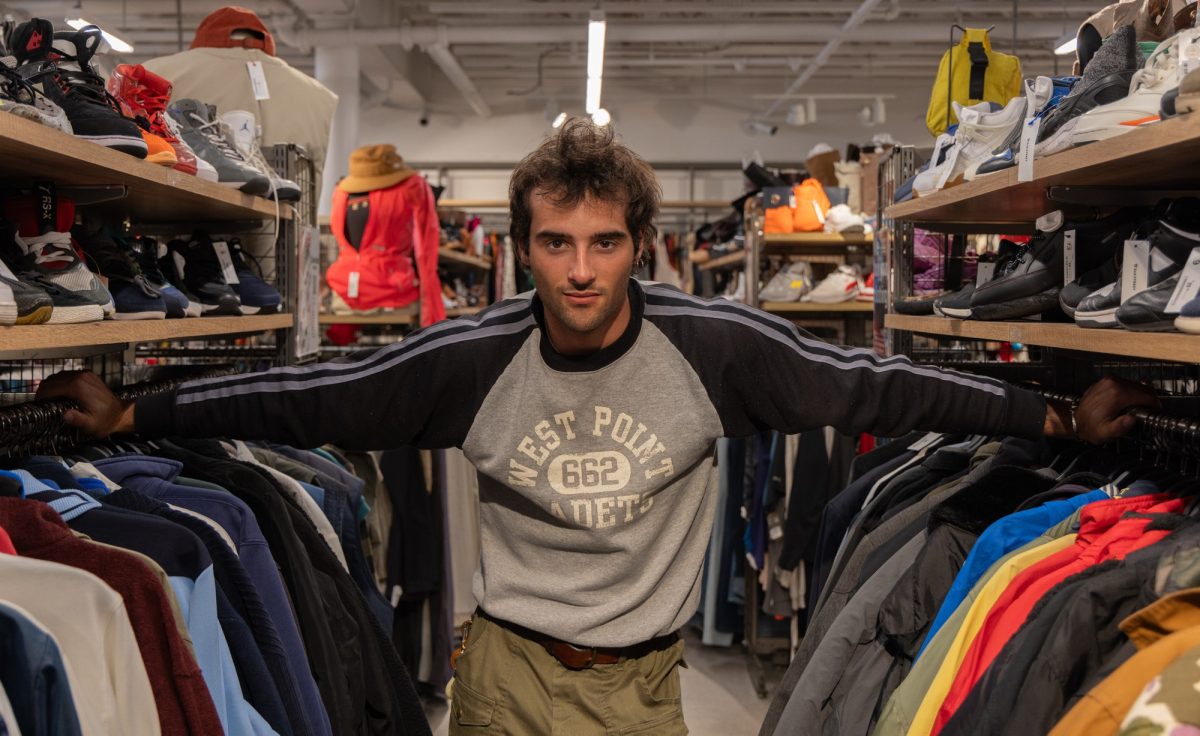Student organizations representing opposite ends of the political spectrum became more active this semester amid Donald Trump’s second term as U.S. president. MTSU chapters of Young Democratic Socialists of America and Turning Point USA hosted lectures on the shortcomings of American mass media, uniting them in their distrust of mainstream media.
In today’s polarized climate, some may think that the ideological left and right wings of American politics hold nothing but contempt for each other. Far-left “socialists” and right-wing “Christian Nationalists” occasionally quarrel — even at MTSU. A student who attended YDSA meetings was filmed taking down Turning Point flyers in the Student Union last week, resulting in the removal of the advertisement board.
One example that highlights each organization’s contempt for mainstream media is the coverage of George Floyd’s murder in 2020. Different outlets’ reactions to the unrest underscored the similarities — and stark differences — between the two camps, represented on campus by Turning Point and YDSA.
Just before spring break, Turning Point hosted an event called “Everything the Media won’t Tell You.” Daily Wire editor Cabot Phillips spoke about the “lies” mainstream media feeds Americans, explaining his belief that the media hid specific facts about George Floyd’s murder to cover up an unfavorable story.
The ideological left and right criticized the media for their characterization of protestors. The right felt they should be called “rioters,” while the left felt the news should call them “peaceful demonstrators.”
“I feel like, as Americans, you should want to know exactly what’s going on in your country and what’s going on around your new community,” Carley Ranta, president of MTSU’s Turning Point chapter, said. “And I think the media just makes it hard for me to trust [them].”
Even Democrats agree that something is amiss with modern media.
“The media is a mess, in my opinion,” Jorge Avila, president of MTSU College Democrats, said. “Much of the division we see in contemporary politics are rooted in the media we consume.”
Both parties agreed that the current system is set up to serve the interests of the few.
Shortly after Turning Point’s event, YDSA students hosted “Everything the media actually won’t tell you,” where they discussed Noam Chomsky and the five filters of the mass media.
American mass media is a propaganda model in which information passes through five filters before it reaches the public, Chomsky said. Those filters are meant to manufacture consent to, or mask, the ruling class’s activities.
Both speakers agreed that Western mainstream media, which is controlled by a handful of powerful corporations, misleads the American people — although YSDA and Turning Point disagree on the what and how.
Phillips pointed out that individual journalists were more to blame for pushing their personal ideologies rather than the outlet they work for. He noted how disappointed reporters from mainstream media outlets looked as they realized Donald Trump would win reelection in 2024.
“They were so much more confident in the spring,” Phillips said. “And then, as the campaign season went on, I could just see them becoming less and less confident, and that was a beautiful thing.”
This was a split from YDSA member Rio Martinez’s take on media control. He threw reporters a bone in their discussion on the media.
“I think journalists oftentimes have good motivations and want to put out a [good] piece,” Martinez said. “But they have to go through these rounds of editing to make sure it aligns with what the company as a whole puts out.”
One YSDA member, Eden Rose Smyth, related to conservative folks, who make up a majority of the working class, and thinks the commonalities go further than just distrusting the media.
“We agree on, like, 90% of stuff,” Smyth said, listing topics like food, clean air and water. She believed the government has a duty to protect the lives and rights of citizens.
Smyth, who identifies as a blue-collar worker, does not buy the popular notion that classical conservatives and leftists have nothing in common. She said that, despite political differences, working-class individuals share many of the same struggles, including homelessness and the high cost of health care.
“We don’t like the fact that our health insurance is billions of dollars, and we can’t even get our claim approved,” Smyth said. “We don’t like the fact that we have people overseas dying in wars that seem to be pointless.”
The organizations rarely interact despite similar views on specific topics and the potential for understanding.
A willingness to bring all sides to the table is necessary for a healthy democracy, according to the Democracy Fund, something Jacob Pagel of Turning Point knows well.
“You can’t just scream at the other side, which Republicans and Democrats are both notorious for doing,” Pagel said. “But you have to hear [the other] side to understand yourself.”
YDSA does not hold the same sentiment, especially when it comes to LGBTQ+ rights and hate speech.
All groups agree that the current media landscape is not working, at least not in favor of everyday people.
“The best way to remain in power is to produce smokescreens and distractions so common folks do not see their conditions worsening while the richest people in the world get richer,” Avila said. “The system is not broken. It is working exactly as intended.”
This story was originally published on MTSU Sidelines on April 1, 2025.






































